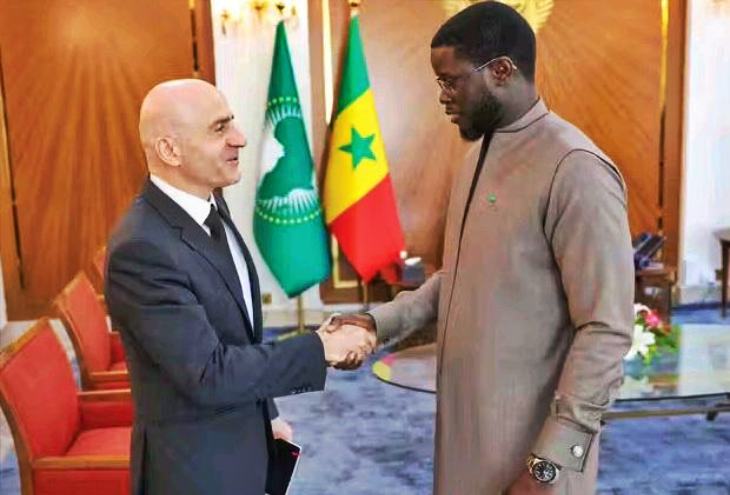Gambiaj.com – (DAKAR, Senegal) – The International Monetary Fund (IMF) and Senegal are entering a crucial phase of negotiations as the West African nation seeks to resolve a financial credibility crisis triggered by revelations of hidden debt and erroneous budgetary data under the previous administration.
Speaking at a recent press briefing, IMF Communications Director Julie Kozack confirmed the Fund’s sustained engagement with Senegal, following an explosive audit that uncovered extensive underreporting of public debt and deficits. “The IMF remains closely engaged with Senegal,” she said, highlighting the Fund’s commitment to assisting the country in addressing what is now described as a “hidden debt crisis.”
Senegal’s fiscal integrity came under scrutiny after the regime of President Bassirou Diomaye Faye revealed that the budget deficit for 2023 was more than double the previously declared figure—exceeding 10% of GDP instead of the reported 5%.
The fallout from the revelations led the IMF to suspend disbursements under a $1.8 billion credit facility approved in June 2023.
Confidence among international investors plummeted, and Senegal’s sovereign bonds lost around 25% of their value following the initial disclosures in September 2024.
Rating agency S&P Global further downgraded the country’s credit rating to “B-” with a negative outlook in July 2025, warning of worsening fiscal stress and placing Senegal at the highest debt-to-GDP ratio among African countries in its category—an alarming 118%.
In an effort to restore trust, the Senegalese government initiated a comprehensive review of its debt structure, working with the auditing firm Forvis Mazars.
Kozack confirmed the IMF had received a preliminary debt inventory and is in the process of validating the findings. “The preliminary assessment in the report is broadly in line with expectations,” she said, adding that final validation is underway.
A pivotal moment in the crisis management process occurred on July 9, 2025, when President Faye met with IMF First Deputy Managing Director Gita Gopinath in Washington, D.C.
During the meeting, Gopinath reiterated the IMF’s readiness to support Senegal through the crisis, while President Faye reaffirmed his government’s commitment to transparency and structural reform.
The IMF has scheduled a staff mission to Dakar at the end of August to determine the next steps. According to Kozack, the visit will address the unresolved issue of data misreporting and begin outlining a new IMF-supported program. “We are working closely with the authorities to design corrective actions to address the root causes of the misreporting and to strengthen capacity development in Senegal,” she stated.
The mission is also expected to pave the way for the IMF Executive Board to consider granting a waiver for the misreporting—a critical step that could unlock negotiations for a new support program.
However, Kozack remained cautious about setting a firm timeline. “At this time, I don’t have additional details to share with you. But certainly, once a staff-level agreement is reached, we will communicate, including about the potential timeline for a formal Board discussion.”
In the meantime, Senegalese authorities are moving to implement key reforms. These include recalculating GDP to potentially lower the debt-to-GDP ratio, centralizing debt management under a single authority, and enhancing oversight of foreign-financed infrastructure projects.
These measures have already had some positive impact—Senegal’s sovereign bonds rebounded in July after news of the recalculation and reform efforts.
Still, the stakes remain high. With large debt repayments looming in 2026 and investor confidence still fragile, the outcome of the IMF mission and Board deliberations will be decisive for Senegal’s financial recovery.
The country stands at a crossroads, with transparency, reform, and international collaboration being its best route out of crisis.










